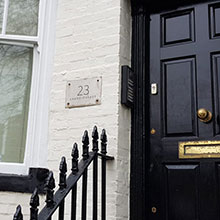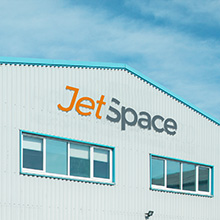
Navigating UK Workplace Trends for the Future of Work
As we hurtle towards the end of the third quarter of 2024, that faint speck on the horizon just coming in to view is 2025. With attention starting to turn to what next year could hold in store for the UK economy and general business landscape it’s a great time to assess current and future workplace trends. Remote and hybrid working is one of the most notable shifts in workplace culture of the past few years but it’s just one of many changes to how we view the world of work in the modern era. These shifts are not just reshaping where we work, but also how office spaces are designed and utilised, placing a greater emphasis on employee wellbeing and adaptable work cultures.
With technological advancements becoming key drivers in evolving workplace transformations, businesses are integrating remote collaboration tools and artificial intelligence to enhance productivity and communication. Hybrid working models have overwhelmingly improved efficiency and job satisfaction in the majority of workplace studies conducted, highlighting the positive impact on employee engagement and retention. Looking at emerging UK workplace trends, it is clear that understanding and adapting to these changes is crucial for staying competitive, ensuring that businesses can attract and retain top talent while fostering a supportive and productive environment for all employees.
Embracing Hybrid Working Models
Shaping Office Design Trends
Hybrid working isn’t just impacting the “Pret economy“, it’s significantly influencing office design trends in the UK. Companies are reimagining their office spaces to accommodate both in-person and remote work, fostering environments that boost productivity and employee wellbeing. As well as there being a trend towards downsizing to reflect that fewer staff are required in the office at any one time, both new and refurbished offices are now being designed with flexible layouts that can easily adapt to different needs, such as collaborative zones for team meetings and quiet areas for focused work.
This flexibility caters to diverse employee expectations, ensuring that office spaces are functional for various tasks. Additionally, there is a growing emphasis on sustainable and ergonomic design, reflecting the increasing importance of environmental consciousness (and the desire to meet CSR goals) along with supporting employee physical and mental health.
The integration of smart technology is also becoming more prevalent, with businesses adopting solutions like automated lighting and air quality control to enhance the office environment and its energy use. There are also improvements to security through technology with modern entry systems designed to prevent unauthorised access to buildings and restricted areas, and automated record keeping of all onsite occupants.

Balancing Work Life and Wellbeing
Hybrid and fully remote working models are just part of the wider trend towards supporting employee wellbeing. Allowing employees to alternate between home and office environments, enabling them to tailor their work schedules around personal commitments, has been a game changer for staff and companies alike. This adaptability is crucial in reducing stress levels and improving mental health, as employees no longer have to navigate the rigid boundaries of traditional office hours. It’s also becoming more difficult for businesses to unreasonably deny the requests of staff to work more flexibly, so it’s better to embrace its benefits now rather than risk alienating staff and losing ground to competitors.
Beyond flexible working practices, companies are increasingly investing in mental health initiatives and wellness programmes to support their workforce. Offering resources such as mindfulness sessions, virtual fitness classes or gym memberships and counselling services demonstrates a commitment to employee wellbeing. And as these supportive measures become more prevalent, those firms that fall behind the pack risk losing staff or failing to attract the top talent.
Employees that feel valued and engaged are more productive and tend to suffer less with itchy feet!
Why Use 5 Days When 4 Will Do?
The concept of a four-day work week may not be new but its rate of take up has never been higher, offering a new dimension to hybrid working models. We’ve previously discussed the rise of the 4 day work week but in short this approach allows employees to work fewer hours without a reduction in pay, aiming to boost productivity and improve work-life balance. It’s typically viewed as a perk for staff but not for the business, however this is a misleading take and studies show the majority of office based businesses that implement the policy well, suffer no loss in productivity and will often see it improve. Meanwhile the benefits from a wellbeing perspective are clear for all to see and can have a dramatic impact on morale, talent acquisition and retention.
There are different ways to implement a four day working week. Some businesses will still operate across a five day week but allow staff to alternate the weekdays they take off, whilst others simply write off Fridays (statistically the least productive day of the week). Different patterns will have pros and cons for different business cases but as it becomes a more commonplace offering, much like with hybrid working, the companies who are sticking with a rigid Monday to Friday 9 to 5 will ultimately become the minority
Technology in the Workplace
As we touched on earlier, advances in technology are playing an increasingly pivotal role in the modern workplace, particularly with regard to facilitating hybrid working models. The use of remote collaboration tools (such as those we featured in our post on essential collaboration and project management tools for SMEs) has become essential, allowing teams to communicate and collaborate effectively, regardless of location. We’re all by now familiar with the likes of Zoom, Slack, Google Meet and Microsoft Teams, tools which were once principally relied upon by corporations with multiple office locations and global workforces. These are now indispensable in near enough all modern workplace environments to maintain connectivity and productivity.
But if communication and collaboration tools were the biggest winners of the post pandemic world of work, artificial intelligence is the most notable battleground for software giants seeking new business customers today. With AI being leveraged to automate routine tasks, employees are able to focus on more strategic initiatives (take a look at our post on automation software for SMEs for some examples). AI-driven predictive analytics can also enhance decision-making processes, providing insights into employee engagement and performance metrics.
The adoption of AI in all areas of modern business is progressing at pace, with risks as well as benefits. And whilst we can’t predict how much it will ultimately impact traditional job roles, we do know that it’s here to stay. Businesses that get to grips with its power now stand to benefit in the future over more cautious rivals.
Workplace Culture Changes and Adaptability
Employee Expectations and Engagement
As working environments change so too do the expectations of the modern workforce, with employee engagement playing a crucial role in business success. Today’s staff seek more than just a salary; they expect a work environment that fosters growth, inclusivity and flexibility. We’ve already looked at how hybrid working is becoming the norm, with employees placing value on autonomy and the ability to balance professional and personal commitments. But it’s more than just being “offered” flexible working conditions as some sort of perk. Employees want to be respected.
Organisations are responding by prioritising employee engagement through initiatives that promote a positive work culture. This includes sharing regular feedback, recognition programmes and increased opportunities for skill development. And with employees increasingly concerned with their health and wellbeing, businesses have been prompted to invest in mental health support and wellness resources.
Engaging employees effectively requires understanding their diverse perspectives and aligning company values with their aspirations. You can read more on fostering a positive and supportive company culture and the many benefits it brings in our previous blog post. Ultimately, meeting these evolving expectations is vital for organisations aiming to stay competitive and sustainable.

Are Office Dress Codes Still Relevant?
The traditional office dress code is undergoing a transformation as workplace culture adapts to modern expectations. Many companies are moving away from the needlessly strict and formal dress codes of the past in favour of more relaxed, smart-casual attire. Twenty years ago the majority of offices, no matter the industry, would require men to wear collared shirts and the sort of shoes you’d not be able to enjoy sport in. Then came the digital media and tech startups that eschewed these outdated rules, gradually shifting the accepted norms.
This shift reflects a broader trend towards flexibility and employee comfort, particularly within hybrid working models where employees split time between home and office. The change is driven by the understanding that comfort can enhance productivity and employee wellbeing. Additionally, allowing employees to express their individuality through clothing can foster a more inclusive and diverse work culture, and it just tends to be considered more respectful to not dictate dress requirements for staff, particularly in non customer/client facing roles.
However, some industries may still maintain formal dress codes, particularly in sectors where professionalism is closely tied to traditional notions of appearance. City traders and estate agents are unlikely to ditch the ties just yet!
Ultimately, the trend is towards a more balanced approach, where dress codes are flexible yet aligned with company values and the specific demands of the role. Ask yourself, are there any legitimate business reasons to be specifying strict rules around staff attire? In most cases the answer will be no and your staff will be more comfortable.
Sustainable Working Practices
The future of work is increasingly intertwined with sustainable practices as businesses strive to meet the growing demand for environmental responsibility. Employees today expect their employers to adopt sustainable working practices as part of a broader commitment to ethical processes. This includes initiatives such as reducing carbon footprints, utilising renewable energy and minimising waste, many of which make sound business sense anyway (hint: saving energy saves you money).
By reducing the need for daily commutes, thereby lowering emissions, businesses can show their commitment to climate goals, so it’s another tick in the box for hybrid working! Additionally, companies are engaging in sustainable decision-making, considering the long-term impacts of their operations on both the environment and society. It’s more than just managing your corporate reputation and as much about attracting and retaining talent, as more workers expect greater commitment towards net zero. Longer term, embracing sustainability is going to be essential for both future-proofing your organisation and promoting a positive work culture.
JetSpace can’t predict the future but we can be pretty confident that the trends of today reflect the direction of travel when it comes to the future of work. Perhaps your business is going through change, adaptation and modernisation right now? If you’re reshaping working practices and recognise the benefits that will come with a reduced office footprint, maybe we can help with office space to rent in Brighton!
Call on 01273 917977 or complete our enquiry form
enquire book a viewing

